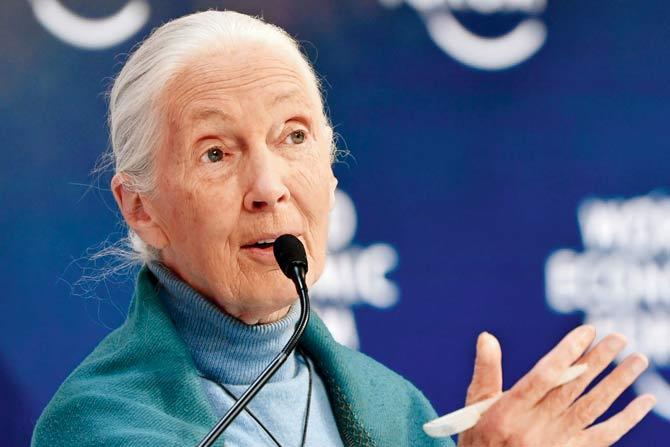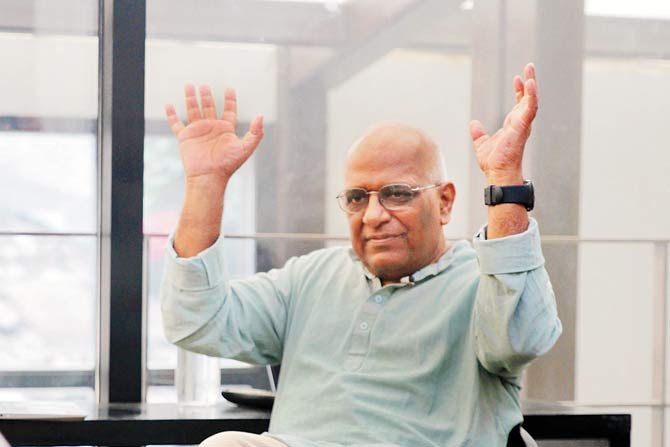From online courses to offline sessions, education about the intricacies of the current crisis is easily available. And how, what needs to be and can be done to battle it

Fashion designer Nayomie Prasad Kapur, Shubham Kar Chaudhuri (campaign facilitator) and Thilakasri Krepanand are members of the Mumbai chapter of global movement XR, which holds classes to get influencers to ask the right questions about climate issues. P
Environment engineer Sagar Dhara opened the first class of the climate school organised by XR in Mumbai in late January of 2020 with a slide about a school in the Sundarbans, a mangrove delta in the Bay of Bengal. That was in 2014. Dhara, as he sat in the room on the first floor of Lower Parel performance space G5A, addressing an audience of around 10, said that due to a combination of subsidence and sea rise, the school was wiped out by 2017. "Climate change is not something that will happen in 50 years. It-s happening right now."
ADVERTISEMENT
The class that went on for a few hours had Dhara break down some of the nuances of the issue at hand—from each country-s contribution to the carbon emission to the individual. Cities, as he emphasises during a phone call interview from Hyderabad where he is based, contribute far more to carbon emissions than rural areas. "And areas in rural regions, where power plants are set up to supply to the cities, are badly affected by this," adds Dhara, founding member of the South Asian People-s Action on Climate Crisis.
So, what needs to change?
Beyond basic awareness, says Nayomie Prasad Kapur, a former fashion designer and communicator, who is a member of the Mumbai chapter of XR, the aim of the classes is to get journalists and influencers to ask the right questions about climate issues. To give an example, she says, "Imagine a report about a solar powered water pump being installed at a village because the regular hand pump would cause a lot of spillage and the water would attract animals from the nearby forest. Now, this would be hailed as a good, environment-friendly move, but the questions to ask are why is the water so low in the ground? Is there a drought in the area? Is that why the animals are coming out of the forest to drink water? How close is this village to the forest?" she adds. XR is short for Extinction Rebellion, a global movement that began in the UK in 2018, by scientist Gail Marie Bradbrook and environmentalist Julian Roger Hallam.
The Climate School, which will be held free, will cover a range of issues surrounding earth sciences, and Kapur hopes, will attract influencers like Shiv Sena MLA Aditya Thackeray and stand-up comic Sanjay Rajoura, both of whom discuss the issues on their social media platforms. "It-ll be great for instance, if a stand-up segment on climate can be done," she adds.

On Masterclass, primatologist Dr Jane Goodall offers a paid class on conservation, outlining three main problems as she sees it—poverty, population growth and waste. Pic/ Getty Images
XR isn-t alone. On Masterclass, the platform where the likes of Gordon Ramsay and Serena Williams teach their skills, primatologist Dr Jane Goodall-s class on conservation starts with the promising line "There is still a window of time. Nature can win if we give her a chance". Outlining three main problems as she sees it—poverty, population growth and waste—she says we may still be able to solve our issues.
Dhara says he and his students have built five calculators based on Indian data to chart out carbon footprint and energy consumption. Over the last seven years, he estimates as many as 6,000 people would have attended classes conducted at venues across the country and world. Many of these participants have changed their lifestyle.
One of them is 74-year-old Delhi resident Arun Bidani. Bidani, who has attended several of Dhara-s classes, is an independent activist, who is a part of SAPACC. He was a software manager at Patni Computer Systems until 2004, when he resigned to engage with social issues full time. He attended the classes, he says, because he wanted to know and reduce his carbon footprint. "These classes help those who are already engaged with issues concerning the environment. For those who are just about getting informed, this will raise awareness, but is unlikely to change behaviour."

Sagar Dhara, environment engineer
On his part, Bidani has given away his car and now uses mass transport. Autos, only when it-s absolutely necessary. "I have stopped taking flights and have had to miss important family events because of this," he adds. But, Bidani hasn-t stopped there. One of Dhara-s calculators show how much home space per capita play a significant role in carbon footprints, and so Bidani moved from large apartments where he lived alone to a shared accommodation, and eventually into a basti. Where he feels that the workshops fall short is that there needs to be an after. "There needs to be a follow-up on the individual level," he adds.
"Climate crisis, like other similar challenges, at their core, are community/collective challenges, and can hardly be addressed at the individual level. Only climate crisis is unique, in that the crisis is both at a planetary level as well as connected to the choices we make in our daily level, in all contexts. Why individual complementary actions are necessary because it makes you understand better the issues at a deeper and wider level, and what difficulties people face in making more appropriate choices, sensitising one to the issues, and attempting to make us walk the talk. I attended Sagar-s workshops for that purpose," Bidani adds.
But for Dhara, while individual change is good, it-s not enough. "Social change is not a sum total of individual change. We need to see these changes at the corporate and enterprise-level and then finally, the world as a whole."
Catch up on all the latest Mumbai news, crime news, current affairs, and also a complete guide on Mumbai from food to things to do and events across the city here. Also download the new mid-day Android and iOS apps to get latest updates
 Subscribe today by clicking the link and stay updated with the latest news!" Click here!
Subscribe today by clicking the link and stay updated with the latest news!" Click here!






